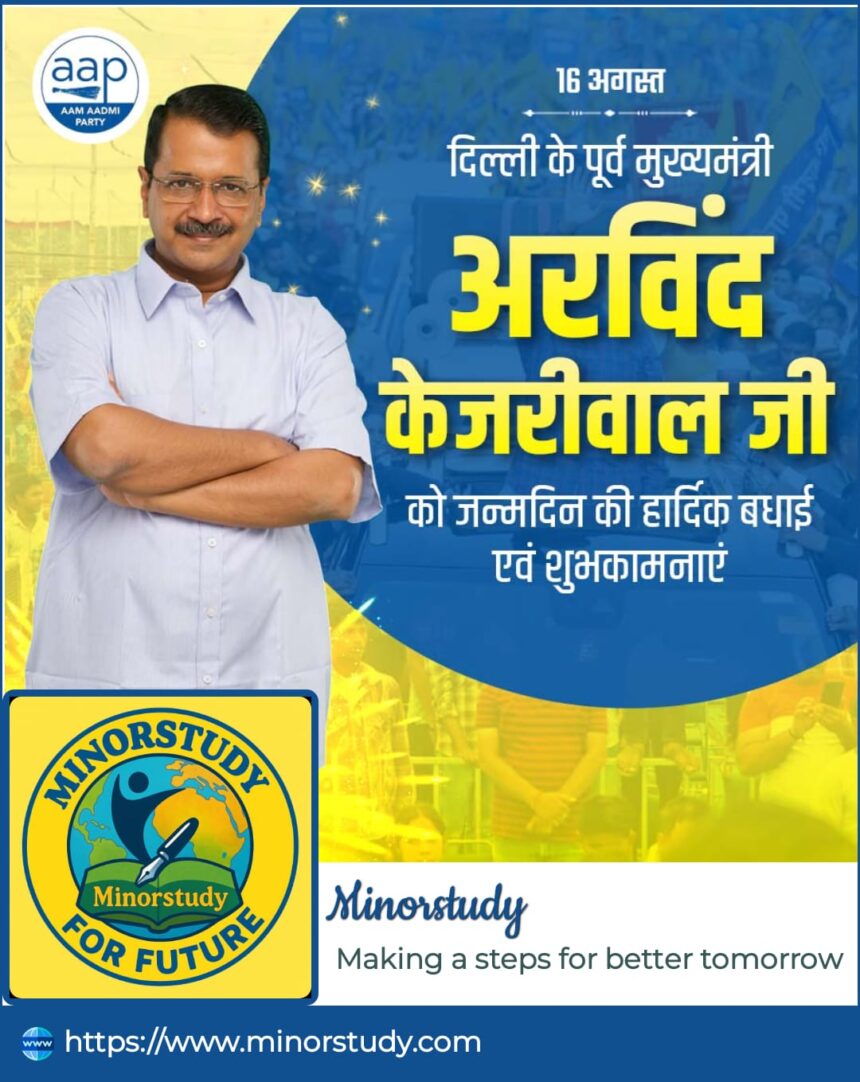Arvind Kejriwal Ji – Life, Leadership, and Legacy
Arvind Kejriwal Ji is a prominent Indian politician, social activist, and current Chief Minister of Delhi, known for his dedication to transparency, governance reforms, and anti-corruption initiatives. From his early career as a civil servant to becoming the face of citizen-centric politics, Kejriwal Ji has demonstrated the power of vision, perseverance, and commitment to societal change.
This article explores his history, facts, FAQs, timeline, significance, achievements, daily life impact, and societal importance in a human-friendly style that highlights his contributions to India’s political and social landscape.
Early Life and History
Birth and Family:
Arvind Kejriwal was born on 16 August 1968 in Siwani, Bhiwani district, Haryana. His upbringing emphasized education, discipline, and social responsibility, which shaped his early interest in public service.
Education:
Kejriwal completed his Bachelor’s degree in Mechanical Engineering from IIT Kharagpur and later worked for the Indian Revenue Service (IRS), gaining valuable experience in governance and policy-making.
Early Career and Activism:
During his tenure as an IRS officer, Kejriwal developed a keen interest in social reforms and civic issues, eventually resigning from service to pursue full-time activism. He co-founded the Parivartan organization and the India Against Corruption (IAC) movement, advocating for transparency, accountability, and citizen rights.
Facts About Arvind Kejriwal Ji
Chief Minister of Delhi: First assumed office in 2013 and has served multiple terms, implementing citizen-focused governance reforms.
Anti-Corruption Activist: Gained national attention through his leadership in the Jan Lokpal movement.
Political Party Founder: Founded the Aam Aadmi Party (AAP) in 2012 to provide a platform for citizen-centric politics.
Governance Reforms: Introduced initiatives like Mohalla Clinics, free water policies, and education improvements in Delhi.
Civil Servant Background: Worked as an IRS officer, providing him insight into government functioning and policy challenges.
Timeline of Arvind Kejriwal Ji’s Life
1968: Born in Siwani, Haryana.
1988: Graduated from IIT Kharagpur, Mechanical Engineering.
1995–2006: Served as an IRS officer, gaining governance experience.
2006: Resigned from IRS to focus on social activism.
2011: Became a key leader in the India Against Corruption movement.
2012: Founded the Aam Aadmi Party (AAP).
2013: Became Chief Minister of Delhi for the first time.
2015–Present: Continues to serve as Chief Minister, introducing reforms in education, healthcare, and public services.
Significance of Arvind Kejriwal Ji
Citizen-Centric Leadership: Focuses on direct engagement with citizens, transparency, and accountability.
Anti-Corruption Crusader: Inspires a culture of honesty, integrity, and ethical governance.
Social Reforms: Advocates policies that directly impact health, education, and public welfare.
Innovative Governance: Uses technology and data to improve efficiency and transparency in government services.
Inspiration for Youth: Encourages political engagement, civic responsibility, and community activism.
Famous Achievements and Contributions
Mohalla Clinics: Established local health centers providing free primary healthcare to Delhi residents.
Education Reforms: Revamped government schools with better infrastructure, teacher training, and student engagement programs.
Free Water and Subsidy Schemes: Introduced policies ensuring affordable utilities for citizens, particularly for lower-income households.
Jan Lokpal and Anti-Corruption: Advocated for the Lokpal Bill, highlighting the need for systemic accountability.
Digital Governance: Leveraged technology to streamline government services, reduce red tape, and enhance efficiency.
Women’s Safety Initiatives: Implemented policies to improve safety and security for women in Delhi.
Public Engagement: Introduced citizen grievance redressal systems and regular town halls for direct dialogue with the public.
Pandemic Management: Led efforts to provide healthcare, testing, and vaccination facilities during COVID-19 efficiently.
Wishes and Tributes
“May Arvind Kejriwal Ji’s dedication to service and transparency inspire citizens to actively participate in governance and social reform.”
“Honoring a leader whose vision and reforms continue to positively impact daily life for millions.”
“Wishing for continued progress under the leadership of Kejriwal Ji, promoting ethics, efficiency, and citizen welfare.”
FAQs About Arvind Kejriwal Ji
Q1: What is Arvind Kejriwal known for?
A1: He is best known for being Delhi’s Chief Minister, anti-corruption activist, and founder of the Aam Aadmi Party, implementing citizen-centric reforms.
Q2: What are Mohalla Clinics?
A2: Mohalla Clinics are community health centers offering free primary care, medicines, and diagnostic services to improve healthcare accessibility.
Q3: How did he start his political career?
A3: Through activism in the India Against Corruption movement, leading to the formation of AAP and his entry into electoral politics.
Q4: How has he impacted governance?
A4: By promoting transparency, direct citizen engagement, digital governance, and welfare reforms, transforming public service delivery in Delhi.
Importance in Daily Life
Civic Awareness: Encourages citizens to engage with governance and social issues actively.
Healthcare Access: Improved healthcare facilities impact daily well-being of residents.
Education Enhancement: Focus on quality education and infrastructure benefits children and families.
Public Utilities and Services: Policies like free water and subsidized electricity improve financial stability for households.
Role Modeling: Demonstrates the importance of integrity, ethical action, and community service in everyday life.
Societal Importance
Political Reform: Promotes ethical, citizen-centered political culture.
Social Justice: Advocates for equity, access to services, and welfare programs.
Youth Inspiration: Motivates young people to participate in politics and social activism.
Empowered Communities: Direct engagement with citizens encourages self-reliance and community problem-solving.
Modern Governance: Sets a benchmark for innovative, data-driven, and transparent governance models.
Conclusion
Arvind Kejriwal Ji’s journey from civil servant to political leader and social reformer demonstrates the power of vision, perseverance, and citizen-centric action. His focus on transparency, welfare, and ethical governance has reshaped public administration in Delhi and inspired millions to engage in societal improvement.
Remembering Kejriwal Ji is a reminder that leadership is not only about power but about service, accountability, and impact on everyday life. His initiatives in healthcare, education, social welfare, and governance highlight that systemic change begins with vision, dedication, and citizen involvement.
By embracing the principles of Arvind Kejriwal Ji, individuals and communities are encouraged to participate actively, demand accountability, and contribute positively, ensuring that leadership and governance remain transparent, effective, and socially responsible.








